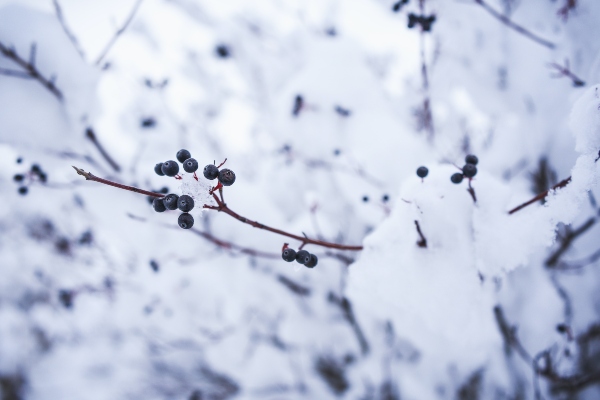Can Blueberries Survive Winter?

There is a big chance blueberries can survive the cold season. Blueberry plants that are completely dormant during the winter are generally very hardy and rarely suffer any significant winter damage. It is important to note that in some cases, dormancy has not yet been established and that protecting blueberries over the winter to mitigate any blueberry winter damage is of primary concern.
Table of Contents
Ways to Prevent Frost Damage to Blueberry Bushes
Many options exist for protecting your blueberries from the bitter cold of winter. Each solution will be analyzed in terms of its usefulness and cost-effectiveness.
Add a Source of Heat
Keeping warm is a great way to avoid getting sick, especially when paired with a cozy blanket. To keep your blueberry bush from freezing overnight, simply place a heat source underneath the cover. To warm your plants, you can use various heat sources. Frost can be avoided by using heat sources such as heating lamps, mats, and even jugs of hot water left under the roof covering.
- Place a gentle heat source near your blueberry plant under the cover.
- Plants can be warmed up with the help of heat lamps and heat mats.
- To keep the plants warm all night, you can place a heated water jug under each plant cover.
- A heat lamp and a heat mat will be the most effective, but they can be pricey and require continuous electricity. While heated water is significantly less expensive, it is not nearly as effective as ice. See which type of heat works best for you by experimenting with various sources of heat.
Watering
You can keep your plant healthy by watering it properly. When the temperature is above freezing, the best time to water is during the day. Soil moisture can be greatly improved by installing an overhead irrigation system. A few watering systems can even be programmed to detect critical temperatures. Even though it’s pricey, this is a worthwhile investment for those who grow berries.
Frost damage is less likely to occur when the soil is wet because it allows more heat to be transferred. For the best results, use an overhead sprinkler system.
Dry soil is more susceptible to frost damage than moist soil, which is the opposite of expected. As a result, moist soil does not freeze into ice, but it does conduct heat better than dry dirt. It will be easier to keep the soil at the right moisture level with a timed irrigation system.
Mulching
Adding mulch to blueberry plants can help keep them warm in the winter. Using mulch as an insulator for your bushes is a cost-effective method because it is relatively inexpensive. Frost and ice damage to blueberry roots can be prevented by keeping the soil warm.
In cold weather, mulch is an effective soil insulator. It also prevents the growth of weeds and offshoots (which are more susceptible to freezing temperatures).
A drawback of mulching is that it can only protect your shrub’s roots. Freeze damage can still occur to anything above the soil level, including most of the bush. As an added benefit, mulch helps to keep out unwanted weeds and their offspring. As a result, they are more vulnerable to frost damage and are more likely to aid in the spread of frost to your plant.
Cover Blueberry
A cold-resistant tarp or sheet can help protect your blueberry plants from frost damage at night. When it’s cold, you can’t use tarps without blocking out the sun during the day, but they’re more durable.
Cover blueberries at night to keep warm air close to the bushes and stop cold air from coming in, so the bushes stay warm. Blueberries still need sunlight, but most covers will block the sun’s rays. It’s best to leave your blueberries out during the day to get the most sunlight. Plastic sheets can provide some protection and may be able to be left on during the day if they are clear enough. Both will help to keep your home from freezing over if you use them correctly. This is a good way to save money because the sheets can be used repeatedly.
